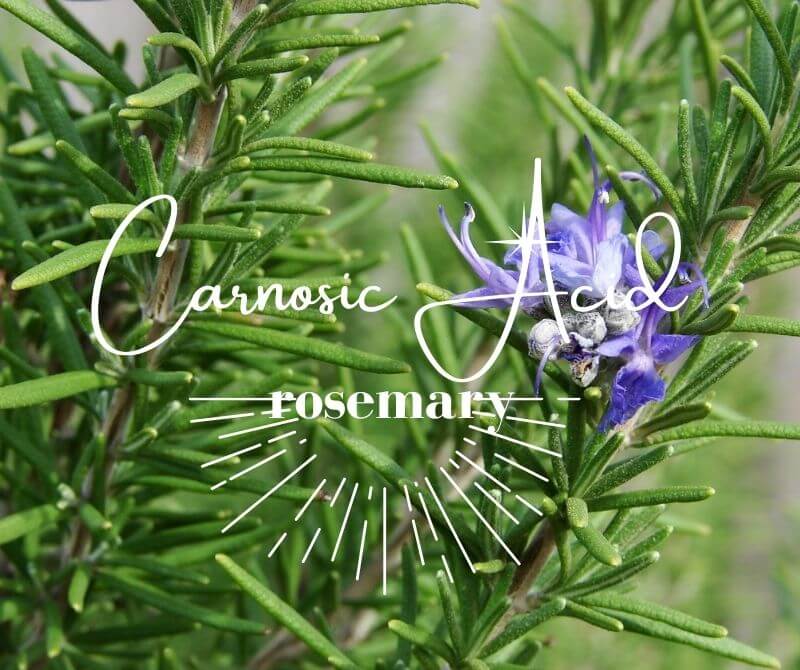What Exactly Is Carnosic Acid? Where Can It Be Obtained
Carnosic Acid powder is a type of plant-based chemical. This particular kind can be derived from a red pine, blueberry, and juniper plants. It can also be obtained from honeybee venom and some animal products, such as dung beetle larvae. The two forms of this particular acid are alpha-carnosic acid and beta-carnosic acid. The former is found in more than one percent of all carnosic acids, while the latter is pretty rare.
Carnosic acid and its derivatives are what are known as natural compounds. They are related to the phenylpropanoids, a large group of organic compounds which include alkaloids and tannins. The carnosic acids can be seen in plants that have been subjected to ultraviolet light. This particular type of light is the same type that causes sunburn in humans and other organisms.
Where Can One Find Carnosic Acid In?
Many people tend to ask themselves where one can find Carnosic Acid powder, which is often found in plants and flowers. It is also found in many different seeds, although it is most commonly seen in pine seeds. Carnosic acid can also be found in some insects and animals, especially those related to dung beetles. Carnosic acid is found naturally. The carnosic acid derived from animal products like insect larvae is often used as a food additive.
It is added to honey and also to sausages. This synthetic form of acid is specifically used as a food preservative. Due to its plant-like properties, carnosic acid tends to be used in skincare products, often found in lotions and creams. It helps the skin look more apparent and has anti-aging properties. Carnosic acid can also be used in cosmetics such as mascara.
Uses Of Carnosic Powder In Our Lives
Carnosic acid is a biologically active substance with tremendous properties in managing plant life and its world. This nutrient is known for its ability to control the growth of plants, decomposition of organic matter, and fight off pests. In addition, it has powerful antioxidant qualities which protect plants from damage caused by free radicals. In short, it is considered one of the greatest wholesome biocides in existence today.
It is an excellent antioxidant that neutralizes reactive oxygen species and thus preventing damage caused by these radicals. It is also used to improve the growth of plants and fight off pests. The element is found in seeds and fruits, but it is not much used. It can be cultivated commercially, but there has not been any attempt yet to do this because it requires a lot of care and effort to produce the proper grade of carnosic acid, which will have all the desired qualities needed for making plantations. It is first dissolved in hot water to use carnosic acid and then added to the hyacinth bean seed meal.
Why Is Carnosic Acid Important?
Carnosic Acid powder is derived from the root of the European mistletoe and is used as a supplement in dogs to bring about clearer, fuller coats. Its use for this purpose dates back several centuries. However, it has only been in recent times that carnosic acid has been recognized for its possible anti-cancer properties. In 2007, scientists discovered that carnosic acid could effectively halt tumor development when given to mice at a dosage of 5 mg per kilogram of body weight per day.
The research team also concluded that carnosic acid acts as a potent inhibitor of tumor cell proliferation in humans and may serve as an effective cancer treatment. Mentioned below are some of the other crucial benefits of this nutrient:
1. It improves the growth of plants.
It helps the plant develop roots, improves the strength of stems and leaves, and adds nutritional elements to them.
2. Inhibits fungal growth and prevents it from developing into infections.
3. Can be used to fight off insects, rodents, and other pests in plants, seeds, and vegetables grown in fields or gardens.
4. It Can be used as a remedy for protecting crops under attack by insects and reptiles like ants, cockroaches, termites, and others who have started eating up the crops in their areas.
In 2008, carnosic acid supplements were given to 45 patients with advanced pancreatic cancers that were not responsive to previous chemotherapy. Unfortunately, most of these patients did not respond positively to the supplement at all, but two out of the 45 showed some signs of recovery. Mentioned below are some of the other crucial benefits of this nutrient



 Healthier Future
Healthier Future